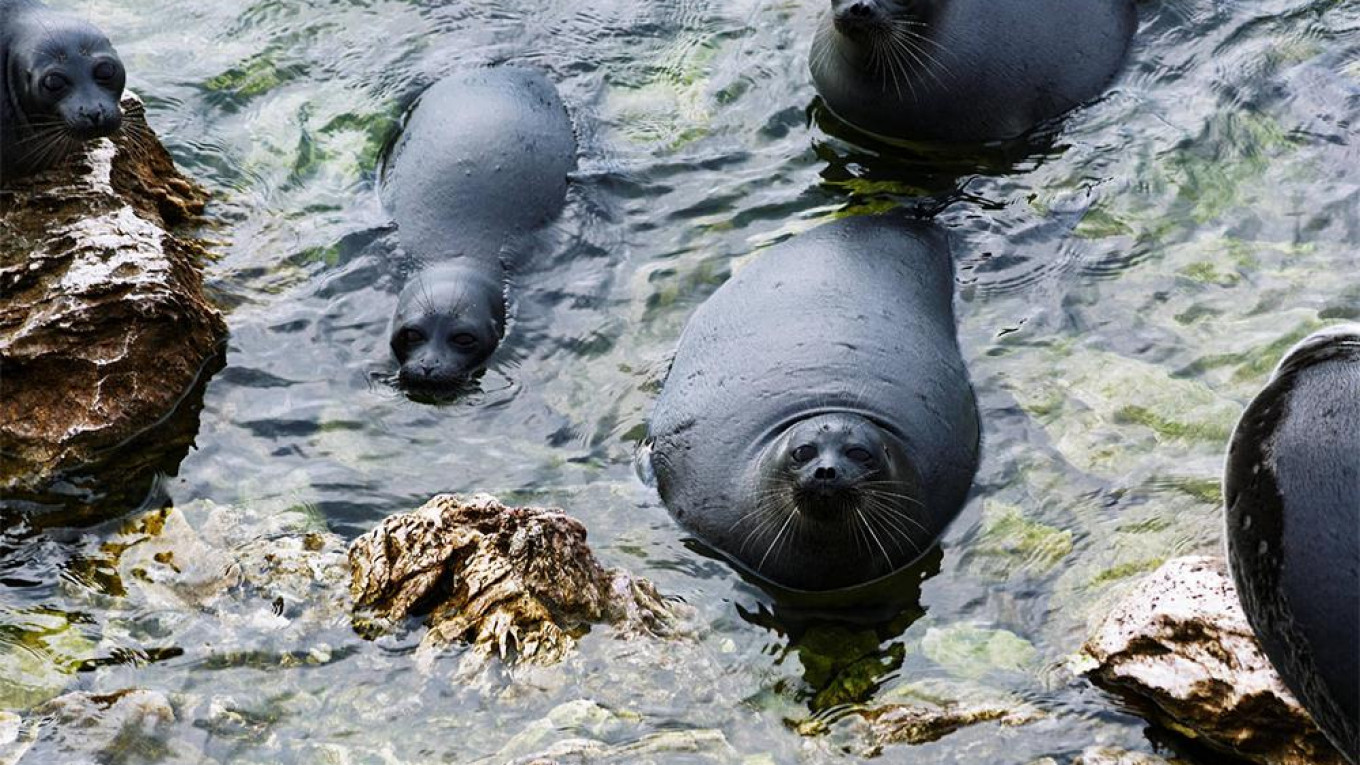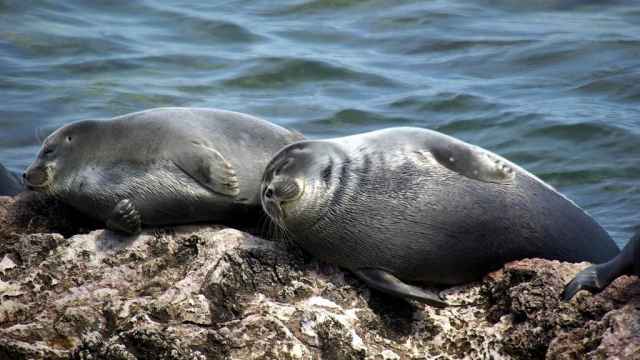Local residents have begun using the carcasses of more than one hundred dead seals who washed up on the shores of Lake Baikal to feed their dogs.
At least 132 dead seals have been found near the freshwater lake in Russia’s Far East in recent weeks. The earless species native to Lake Baikal with a population of up to 130,000 is commonly referred to as the nerpa in Russian.
Veterinarians say the seals might have died from cardiac arrest after failing to feed themselves. Scientists have already ruled out some infections, including the disease that killed thousands of nerpas in the late 1980s. Environmental authorities have not yet ruled out a different infectious disease as the cause of the mass deaths.
Alexei Kalinin, an attorney at the West Baikal Environmental Prosecutor’s Office, told the Interfax news agency that there had been several established cases of locals feeding the dead seals to their dogs.
“Experts are explaining to the residents that the use of the animals’ meat, fat, and hide is prohibited,” he was quoted as saying.
The deaths follow recent reports that a tourist boom and pollution has led to the disappearance of local fish species and a growth of putrid algae in Lake Baikal, the world's largest freshwater lake.
After President Vladimir Putin ordered government agencies to crack down on Lake Baikal polluters on Oct. 25, prosecutors have opened dozens of criminal cases connected to the violation of environmental protection rules.
A Message from The Moscow Times:
Dear readers,
We are facing unprecedented challenges. Russia's Prosecutor General's Office has designated The Moscow Times as an "undesirable" organization, criminalizing our work and putting our staff at risk of prosecution. This follows our earlier unjust labeling as a "foreign agent."
These actions are direct attempts to silence independent journalism in Russia. The authorities claim our work "discredits the decisions of the Russian leadership." We see things differently: we strive to provide accurate, unbiased reporting on Russia.
We, the journalists of The Moscow Times, refuse to be silenced. But to continue our work, we need your help.
Your support, no matter how small, makes a world of difference. If you can, please support us monthly starting from just $2. It's quick to set up, and every contribution makes a significant impact.
By supporting The Moscow Times, you're defending open, independent journalism in the face of repression. Thank you for standing with us.
Remind me later.






